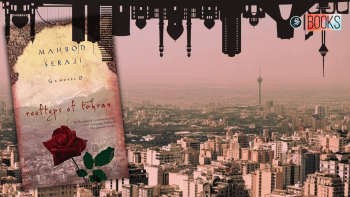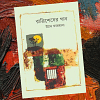The ethics of ghostwriting in fiction

When I first heard that Millie Bobby Brown was writing a book, I initially thought, "A memoir? At 19?". Turns out, it's a historical fiction novel called Nineteen Steps about a tragic accident that happened in Bethnal Green, London, in March of 1943. Set against a World War II backdrop, the novel tells the story of protagonist Nellie Morris and her life in East London during the war.
During that time, Bethnal Green Station served as an air raid shelter, and it was the 19 steps of stairs leading down to the station where, in an attempt to rush down for cover, a woman tripped and caused the descending crowd to topple, resulting in a mass crash that killed 173 people.
I was excited to read about this often untold tragic incident of the war. But my excitement was short-lived as the book began with the following passage: "It was hot—the kind of heat that makes you yearn for the weather to cool down and the leaves to fall, but then you berate yourself for wishing away the good weather." The book is written in a clichéd descriptive way that reminded me of certain fanfictions I grew up reading on Wattpad, filled with two-dimensional characters and poorly constructed dialogues.
Halfway through the book, the clichéd plot of a love triangle becomes evident, but due to the way the characters are written, it's difficult to feel any connection or empathise with them. It's challenging to feel empathy when the love interest begins with the same-old clichéd "not like other girls" dialogue: "This girl, with her obvious love for her little sister, her spirit, her unconventionality, her disregard for danger—now she was different all right." And even after reading through to the very last page, there's not much you can make out about the main character other than the fact that she is "quite attractive" and "feisty".
I see no necessity for writing a scathing review of a book authored by a 19-year-old, and this article is not about that. It turns out that if I am to criticise the book, there's another person to join the equation. That is the ghostwriter, Kathleen McGurl. So, instead, I am more curious about the ethics of ghostwriting in collaboration with a celebrity. Since my main qualm with the book itself is more about the way it was written and less about the story, who should be critiqued here?
Ghostwriting is not new, and Millie Bobby Brown is not the first celebrity to hire a ghostwriter. But, soon after she published her book, she came under fire for using one. Fans have been quick to point out how the cover had Brown's name in large gold print with no mention of the collaborator. More criticism was hurled when the ghostwriter mentioned in her blog post the actual contribution made by Brown—"I was sent a lot of research that had already been pulled together by Millie and her family, and plenty of ideas, and we had a couple of Zoom calls. And then I knuckled down and wrote the first draft, while Millie continued sending more ideas via WhatsApp." Now, the question arises, can you put someone's name as an author when they have not written a single word?
Ghostwriting is quite common in memoirs, and it's a well-known fact. I don't think any of us expected Britney Spears to write her memoir, The Woman in Me (Gallery Books, 2023), and I would assume audiences are okay with memoirs being ghostwritten because the story is the author's own. Similarly, ghostwriting can be common for other kinds of nonfiction work as a ghostwriter might help organise the research material into the pages of a book or help in gathering the research material.
But the situation slightly differs when the conversation is about fiction. With fiction, audiences expect words to have some connection to the author itself. Fiction is never just about the story; it's also about how it's told and that varies from author to author. Every author will write the same story in a slightly different way based on their writing style. Their life experiences will also add something to a piece of literature, adding value to fiction. This is perhaps why the audience feels cheated with Brown's book where the words were never her own.
Amidst the backlash, people have also defended the young actor by saying that the story was her family's. But my two cents here are that every piece of fiction is taken from someone's story. People have also defended the actor by saying how celebrities are known to put their names on perfumes, makeup, etc., without ever having to do anything with the product itself, forgetting that fiction is supposed to be a creative work of art and not simply a product to be sold. With AI already taking jobs from writers, ideas such as these could be a downhill slope to disaster.
But, it is true; the backlash here might have been louder because of misogyny, as this is a young woman who dares to explore and move beyond just acting. There are authors such as James Patterson who have published more than 200 novels with the help of ghostwriters and faced not even half the criticism of Brown. The difference here might be that Patterson actually does put his words to the paper—almost half the writing is done by him.
Ghostwriting is an essential industry, serving as important collaborators for authors who lack the time or expertise to thoroughly refine their work. However, when it comes to works of fiction, endorsing the practice of crediting authors on the cover with minimal actual writing contribution should be discouraged.
Even amidst the negative press surrounding the book, Nineteen Steps stands out as one of the few pieces of literature addressing the Bethnal Green Station tragedy. For the longest time, the public was not allowed to discuss it, making this work of fiction inherently significant. The book aimed to showcase life in East London during the war, and perhaps if the writers had managed to vividly depict that life instead of relying on clichés, one could critique the book itself rather than start a conversation about ghostwriting.
Tasnim Odrika is a biochemist and a writer. She can be reached at [email protected].

 For all latest news, follow The Daily Star's Google News channel.
For all latest news, follow The Daily Star's Google News channel. 











Comments